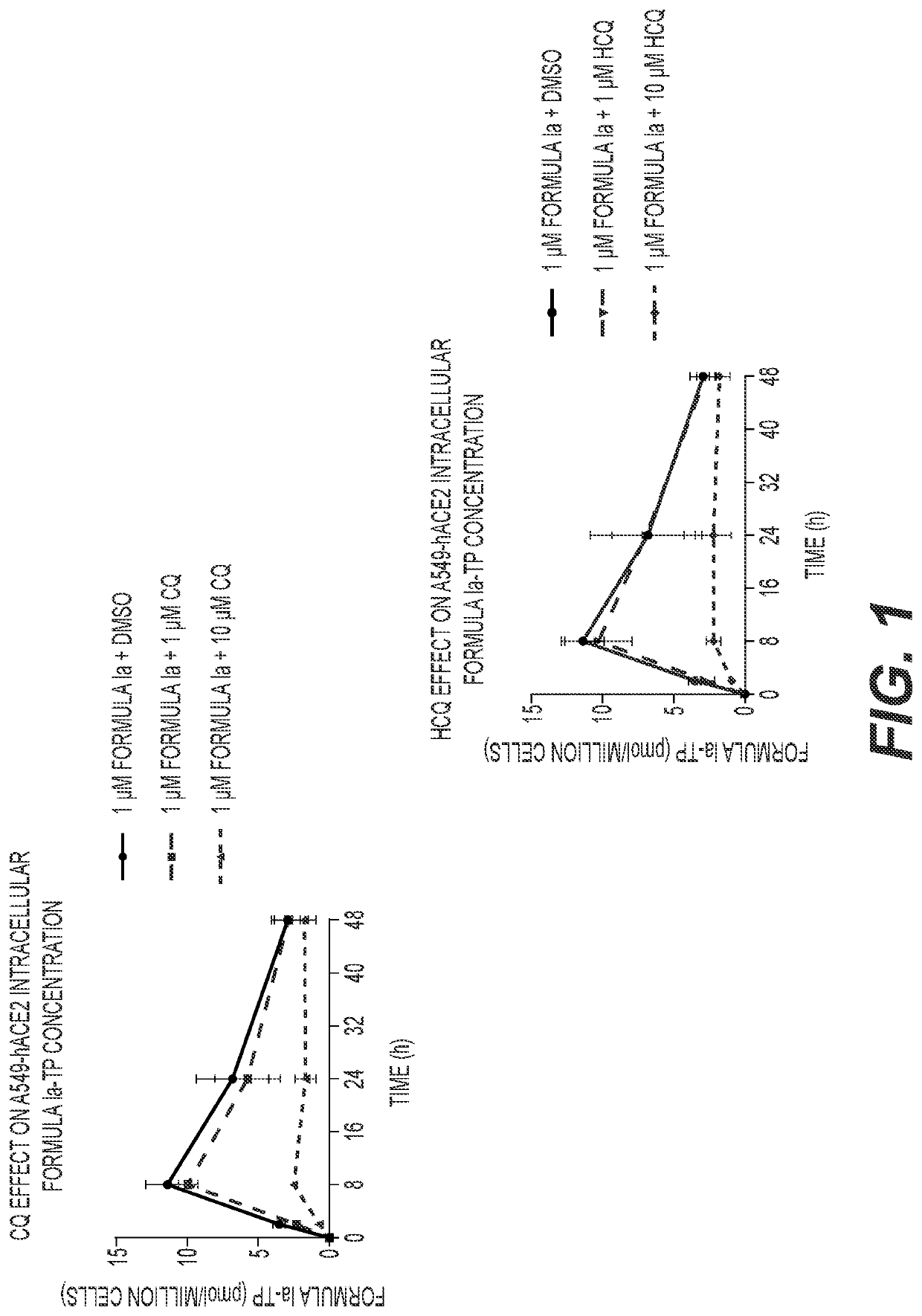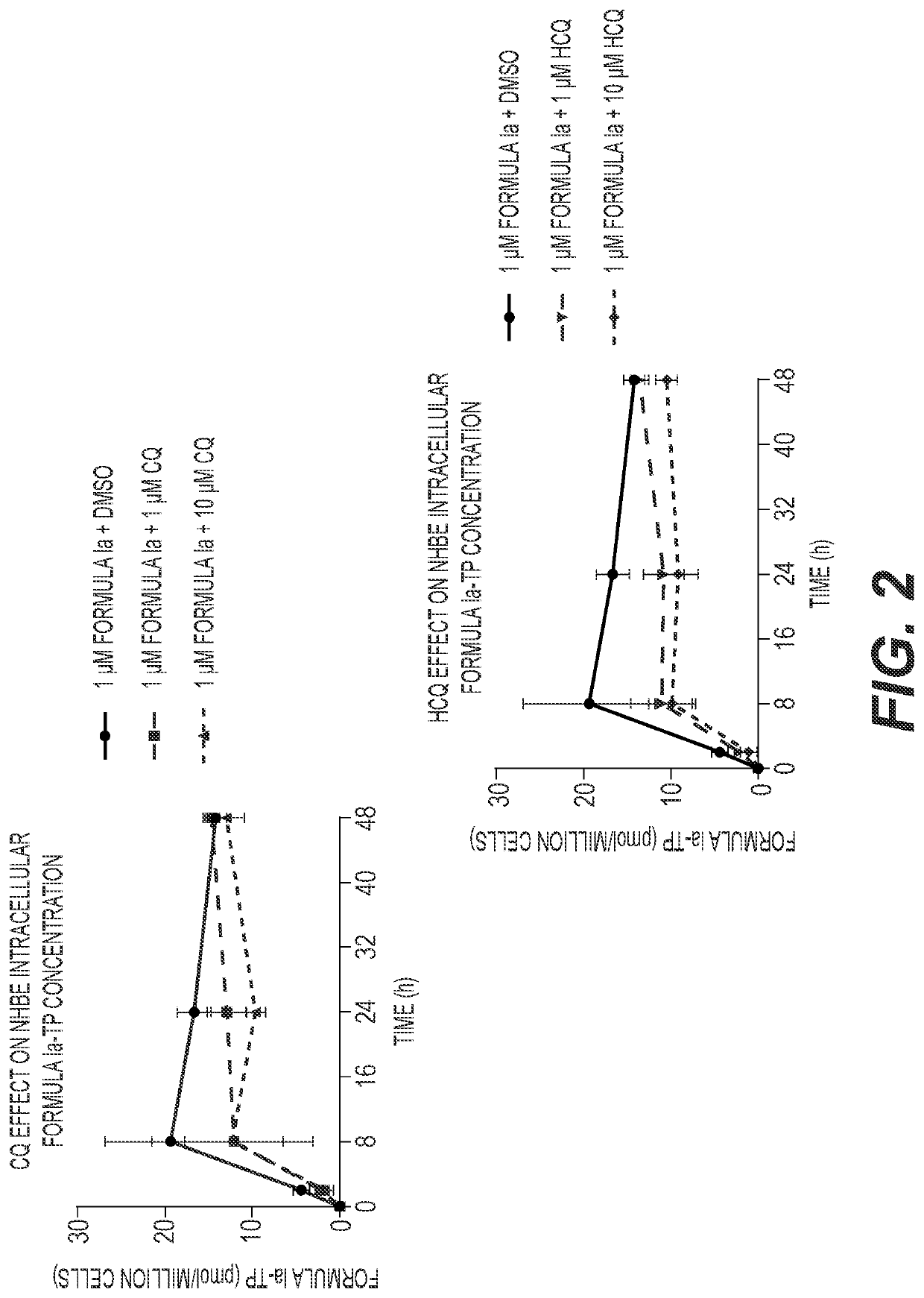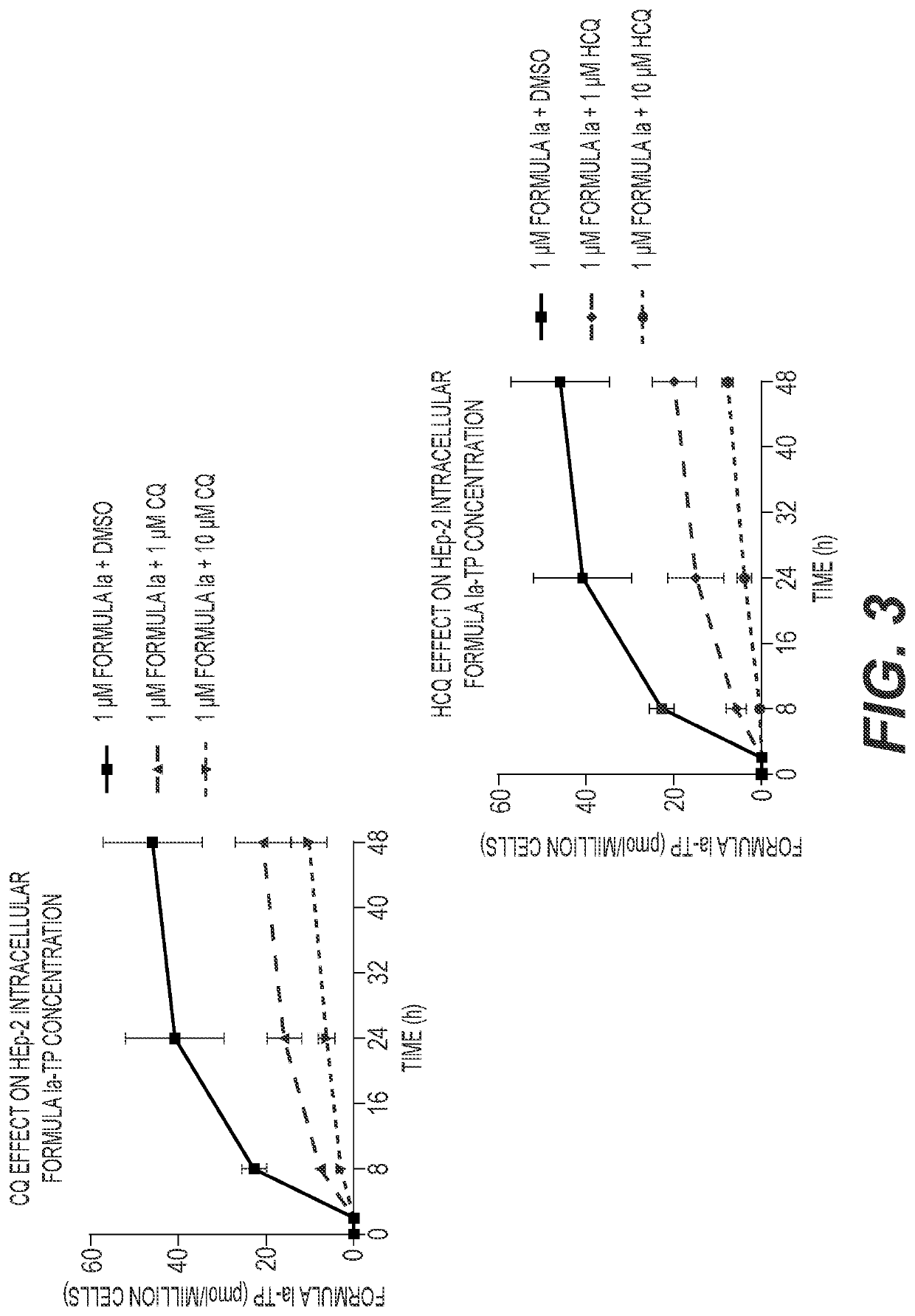Remdesivir treatment methods
a treatment method and technology of remdesivir, applied in the field of remdesivir treatment methods, to achieve the effect of reducing the risk of a reduced plasma concentration
- Summary
- Abstract
- Description
- Claims
- Application Information
AI Technical Summary
Benefits of technology
Problems solved by technology
Method used
Image
Examples
example 1
ne Effect on Compound of Formula Ia in Cells
[0125]Antiviral potency of the compound of Formula Ia against respiratory syncytial virus (RSV) was determined in HEp2 cells in the following manner. HEp2 cells (3×103 / well) were suspended in DMEM medium+GlutaMAX (supplemented with 10% FBS and 1% Penicillin / Streptomycin) and seeded into 96 well plates. After a 4-hour incubation at 37° C.+5% CO2, three-fold serial dilutions of the compound (final RDV concentration of 9.28 nM to 2000 nM) were added to each well using an HP D300e digital dispenser. To determine the effect of chloroquine (CQ) on Formula Ia antiviral activity, the Formula Ia dilution series was additionally spiked with DMSO or 4× increasing concentrations of CQ (final concentrations: 10 nM, 40 nM, 160 nM, 640 nM, and 2560 nM). The cells were then infected with RSV A2 virus diluted in DMEM medium+GlutaMAX at an MOI=4 and incubated for 4 days at 37° C. and 5% CO2. The final volume in each well was 200 μL. Uninfected and untreated...
example 2
m Data
[0127]A549-hACE2 and NHBE cells were seeded in 6-well plates at 4×105 and 2.5×105 cells / well, respectively. HEp-2 cells were seeded in 12-well plates at 2.5×105 cells / well. Twenty-four hours later, cell culture medium was replaced with medium containing 1 μM Formula Ia alone, or in combination with 1 or 10 μM of either CQ or HCQ, and incubated at 37° C. At 2, 8, 24 and 48 h post drug addition, cells were washed 3 times with ice-cold tris-buffered saline, scraped into 0.5 mL ice-cold 70% methanol and stored at −80° C. Extracts were centrifuged at 15,000 g for 15 minutes and supernatants were transferred to clean tubes for evaporation in a miVac Duo concentrator (Genevac). Dried samples were reconstituted in mobile phase A containing 3 mM ammonium formate (pH 5) with 10 mM dimethylhexylamine (DMHA) in water for analysis by LC-MS / MS, using a multi-stage linear gradient from 10% to 50% acetonitrile in mobile phase A at a flow rate of 360 μL / min. Analytes were separated using a 50×...
example 3
2 Antiviral Data
[0129]The anti-SARS-CoV-2 activities of the compound of Formula Ia and either CQ or HCQ were evaluated in A549-hACE2 transformed airway epithelial cells. The compound of Formula Ia, CQ, and HCQ individually exhibit potent in vitro antiviral activities against SARS-CoV-2, with EC50 values of approximately 59.5 nM, 451 nM, and 365 nM, respectively (Table 5). The compound of Formula Ia EC50 values were not observably different when combined with CQ or HCQ at concentrations up to 2.5 μM (Table 5); however, the overall Nluc signal in the assay decreased in the presence of CQ or HCQ in a dose-dependent manner (FIG. 4A and FIG. 4B). As shown in FIG. 4A, the Nluc signal at 0 μM Formula Ia (DMSO)+CQ corresponds to the Nluc signal at the specific CQ concentration in that treatment condition. The baseline Nluc signal of each Formula Ia titration curve is lowered to levels corresponding to the CQ concentration in that treatment condition. Similar effects are observed in the HCQ-...
PUM
| Property | Measurement | Unit |
|---|---|---|
| concentration | aaaaa | aaaaa |
| time | aaaaa | aaaaa |
| time | aaaaa | aaaaa |
Abstract
Description
Claims
Application Information
 Login to View More
Login to View More - R&D
- Intellectual Property
- Life Sciences
- Materials
- Tech Scout
- Unparalleled Data Quality
- Higher Quality Content
- 60% Fewer Hallucinations
Browse by: Latest US Patents, China's latest patents, Technical Efficacy Thesaurus, Application Domain, Technology Topic, Popular Technical Reports.
© 2025 PatSnap. All rights reserved.Legal|Privacy policy|Modern Slavery Act Transparency Statement|Sitemap|About US| Contact US: help@patsnap.com



